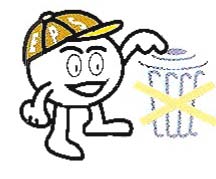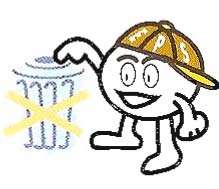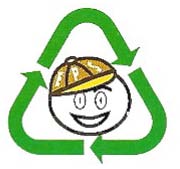
2 - The manufacture and use EPS does not generate any risk to health or to the environment.
 3 - EPS does not damage the ozone layer since it does not and never has used CFCs of HCFCs in the manufacturing process.
3 - EPS does not damage the ozone layer since it does not and never has used CFCs of HCFCs in the manufacturing process.

4 - The transformation process consumes little energy and does not generate waste.
 5 - The use of EPS thermal for insulation in the construction industry means significant: energy savings on heating and cooling buildings and a drastic reduction the emission of polluting gases s (C02 and S02) It therefore contributes to alleviating the greenhouse effect and acid rain.
5 - The use of EPS thermal for insulation in the construction industry means significant: energy savings on heating and cooling buildings and a drastic reduction the emission of polluting gases s (C02 and S02) It therefore contributes to alleviating the greenhouse effect and acid rain.

6 - EPS packaging, given its characteristics, in addition to providing full protection to packed products also saves transport fuel. This is because it is a very light material and means it does not raise the product's cost because of the weight of its packing i.e. in transporting products packaged with EPS, the product and not the packaging is what is paid for.
 7 - EPS packaging can come into direct contact with foodstuffs as it meets all the prevailing international health regulations.
7 - EPS packaging can come into direct contact with foodstuffs as it meets all the prevailing international health regulations.

8 - Fungi and bacteria can not grow on EPS.

9 - EPS makes up only a tiny part of the average Municipal Solid Waste (0.1%). In addition, the incidence of EPS is a minimal portion of the overall waste generated by our society

10 - EPS products hold a high caloric value (1 kg of EPS is the equivalent of 1.3 litres of liquid fuel) a fact which renders it an ideal material for energy recovery

11 - Since it is insoluble in water, EPS does not emit hydrosoluble substances that could contaminate subterranean water supplies.

12 - EPS is 100% recyclable.
FINAL CONCLUSION: Life Cycle Analyses have shown that Expanded Polystyrene has far less of an impact on the environment than other competitive materials for the same use.